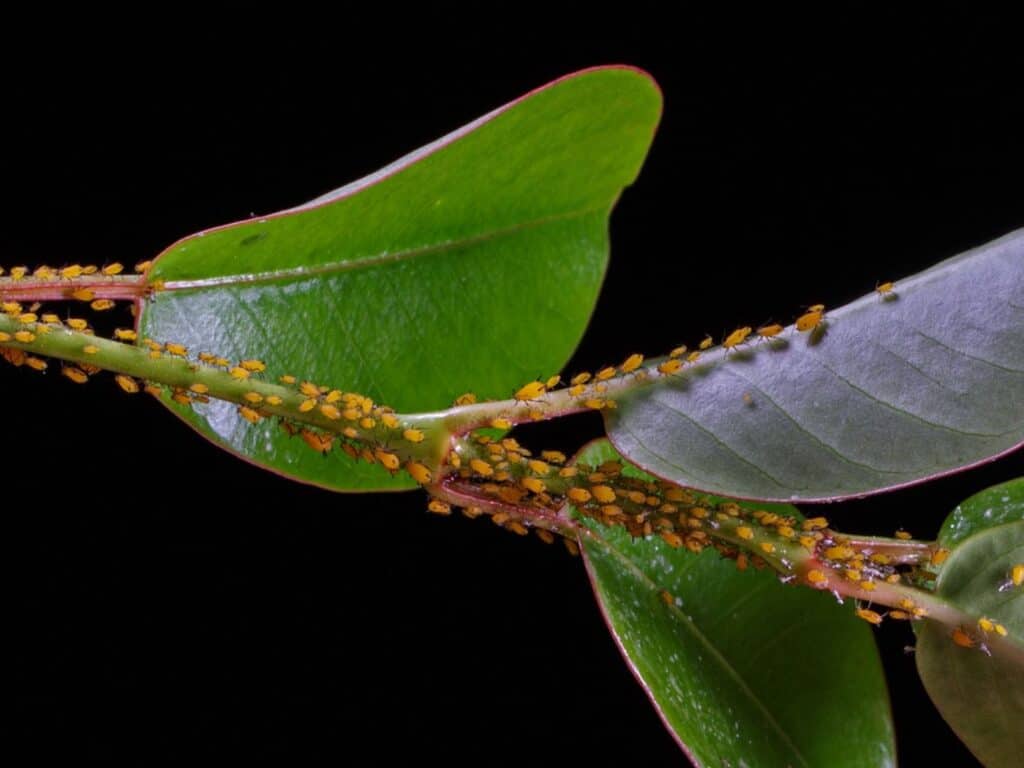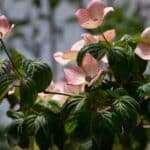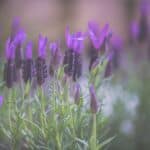Imagine walking into your garden, only to see your beloved plants being overrun by aphids. These tiny, destructive pests can turn a lush garden into a withering mess in no time.
But don’t despair. Nature has a clever way of balancing things out. There are certain plants that aphids can’t stand, and incorporating them into your garden may well just be the solution you’re seeking.
In this article, we’ll explore the world of aphid-repelling plants. We’ll delve into why these plants are aphid’s worst nightmare, and how you can use them to protect your garden.
So, if you’re ready to declare war on aphids, you’ve come to the right place. Let’s arm you with the knowledge you need to reclaim your garden.
Discovering Common Plants That Naturally Deter Aphids
On this green journey, let’s delve into the botanical world of deterrents. We’re talking about nature’s very own pest controllers, plants that naturally repel aphids.
Marigolds: Vibrant and Effective
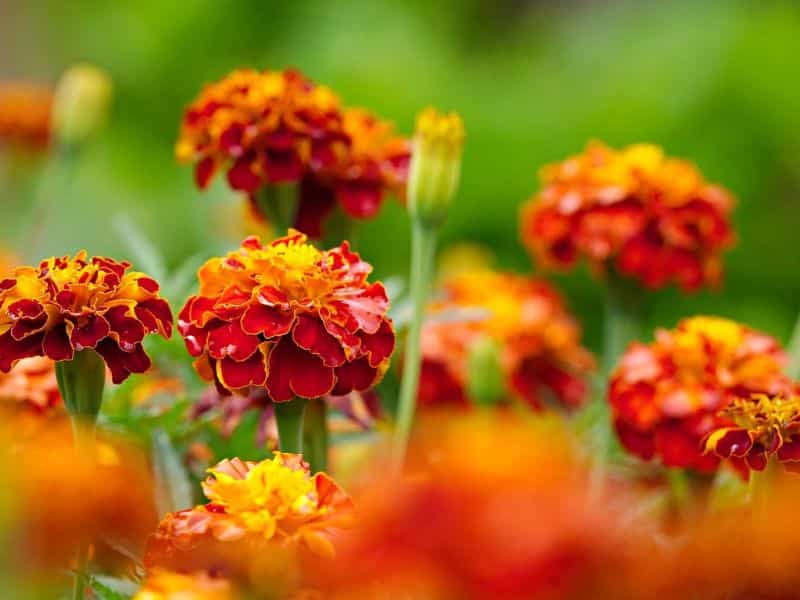
There’s much more to Marigolds than just their sunny bloom. Apart from boosting your garden’s visual appeal, Marigolds have a secret superpower. They give out a scent that aphids detest.
If you’ve got an aphid problem, just tuck some Marigolds between your vegetables and flowers, and watch them work their magic!
Catnip: More Than Just for Cats
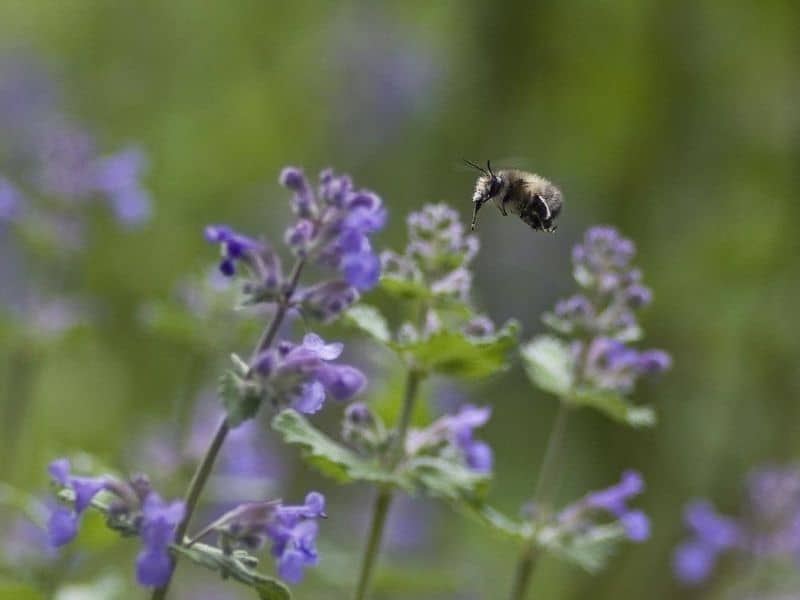
That little furball at home isn’t the only one who finds Catnip irresistible. But for aphids, it’s a different story.
Catnip’s strong scent acts as an aphid turn-off. Planting just a few Catnip sprigs amidst your greenery can help keep those pesky aphids at bay.
Best Herbs That Repel Aphids
After exploring the promising roles Marigolds and Catnip play in repelling aphids, let’s shift our attention to a few herbs. These aren’t just aromatic delights in your kitchen but also significant aphid deterrents in your garden.
Basil: A Dual-Purpose Kitchen Herb
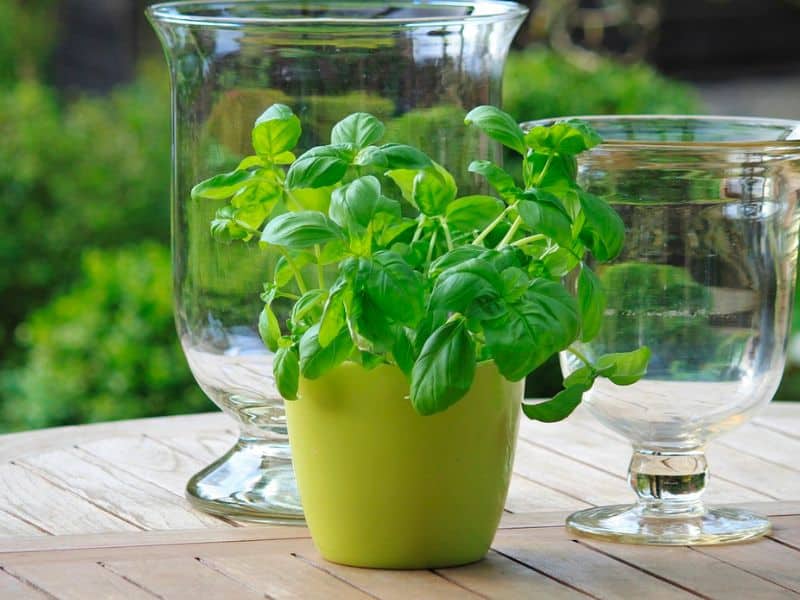
Ah, the delicious, fragrant Basil! It’s a wonder in your pasta sauce and a terror for aphids. This versatile herb spreads an aroma that’s pleasant to us but pesky pests like aphids find it off-putting.
Plant a few basils in your garden, and you’ll notice the aphid population dwindling. Plus, you’ll have a rich supply of fresh basil leaves for your next culinary adventure.
Chives: Subtle Yet Strong
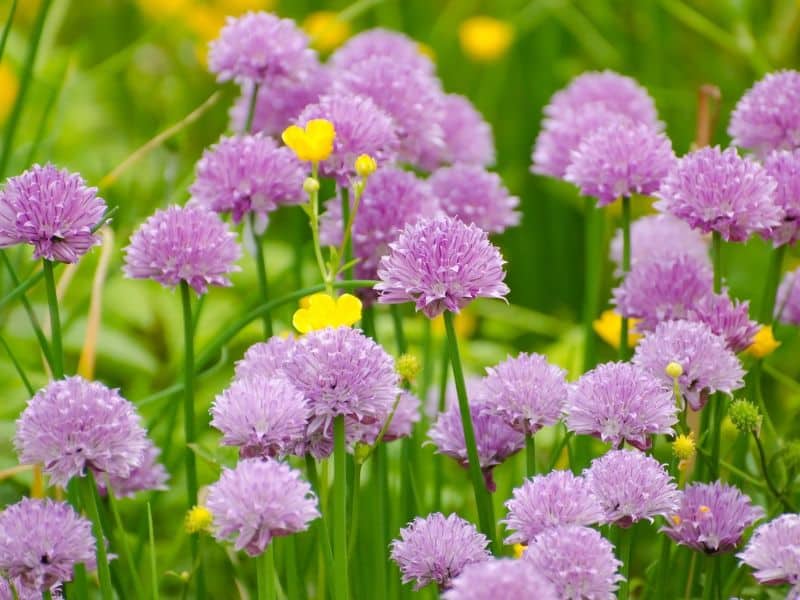
Don’t underestimate the modest chive. It may well seem delicate with its tiny purple flowers, but it packs a punch when warding off aphids. They are easy to grow and need little maintenance.
Tuck a few into your garden beds. Not only will they add a splash of color, but they’ll also keep those bothersome aphids away.
Mint: Refreshing and Repulsive to Pests
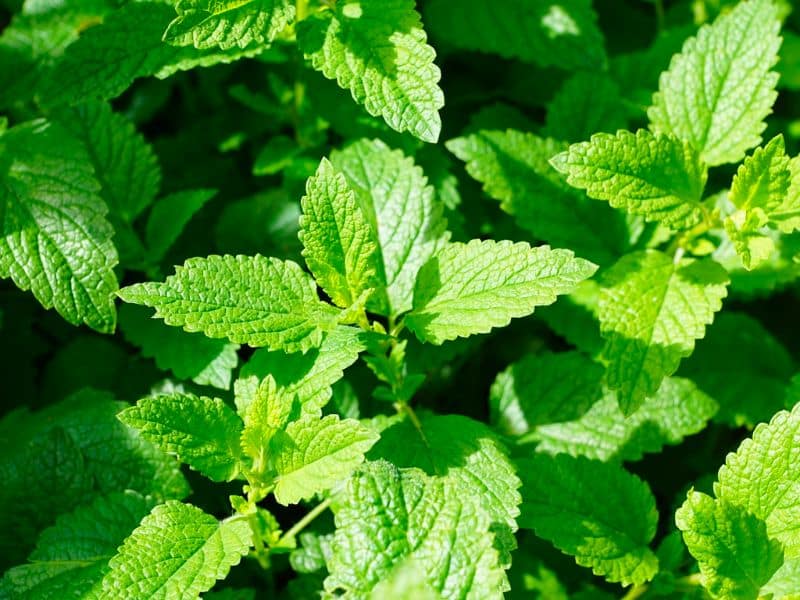
Mint is a garden favorite; it’s familiar, refreshing, and repugnant to aphids. Mint’s robust scent that we find invigorating is detested by aphids. An added advantage is it’s a fast-growing plant.
Care must be taken with its invasive nature, though; consider placing mint in pots to avoid it spreading uncontrollably. A garden mixed with the scent of mint is less enticing to aphids, saving your greens from being an aphid feast.
Exploring the Role of Aromatic Plants
In this section, we dive deeper into the fascinating role of aromatic plants and their aphid-repelling powers. Our focus will be on two prominent members of this category: lavender and rosemary.
Lavender: Beauty Beyond Appearance
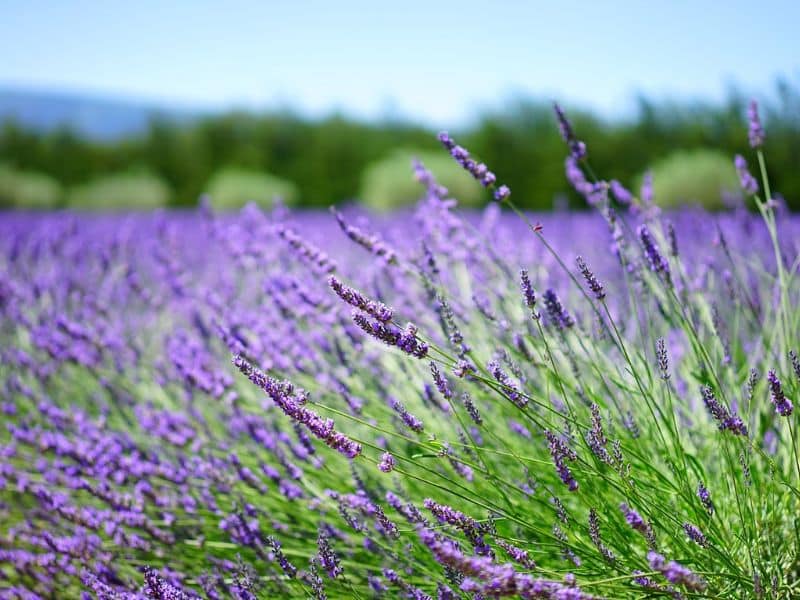
There’s more to lavender than its captivating beauty and pleasant aroma. This blooming wonder secretes scents that leave aphids running, making it a potent, all-natural guard for your garden.
It beautifully marries form and function in your green space, offering visually arresting blooms while keeping those pesky aphids at bay. So, go ahead, add a few lavender plants and give your garden that extra layer of aphid protection.
Rosemary: An Herb with a Resolute Defense
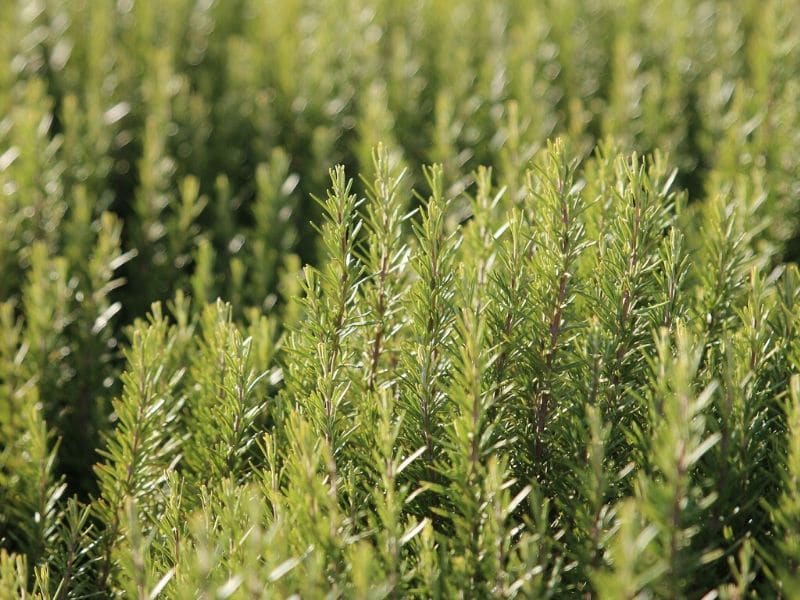
Rosemary, apart from being a culinary staple, has got a staunch defense against aphids up its leafy sleeves. Emitting a strong fragrance that aphids can’t stand, rosemary is your garden’s best line of defense.
This hardy herb demands minimal care, thriving in a variety of conditions, making it a practical choice for both novice and experienced gardeners. So consider sprinkling some rosemary around your yard, and let its aroma serve as a fortress against invading aphids.
Utilizing Companion Planting Strategies
Transitioning your garden into a fortress against aphids doesn’t just involve planting repellent herbs. The next step is applying a strategy known as companion planting.
Benefits of Companion Planting With Repellent Plants
Companion planting leverages the concept of symbiosis, creating an environment where plants support each other. More precisely, companion planting with repellent plants offers two prime benefits.
First, it’s an organic and effective way to reduce aphid infestations. It reduces the need for synthetic chemicals, making your garden safer for beneficial insects and the environment.
Second, planting different types of plants together promotes biodiversity. Referencing our aromatic herbs, lavender and rosemary, their strong scents not only deter aphids but also attract pollinators like bees and butterflies. Talk about having your cake and eating it too!
Effective Plant Pairings That Maximize Aphid Repellence
Think of companion planting as a strategic art. Crafting your garden with plant pairings that amplify aphid repellence is like arranging chess pieces in a winning game.
A classic combo to consider is planting onions alongside carrots. Onions emit a scent that aphids dislike, shielding the carrots from infestation. Similarly, rosemary and beans make a solid pair. Rosemary’s strong scent drives aphids away, protecting the beans.
How to Care for Your Aphid-Repelling Plants
Keeping your aphid-deterring green friends at their best requires knowing their specific needs and meeting them consistently. So, let’s dive in to demystify those plant care specifics for you.
Soil Requirements and Sunlight
A healthy start begins with the right soil. Whether it’s the aromatic Marigold or the delightful Catnip, most aphid-repelling plants prefer well-drained soil enriched with organic matter.
Composting is a nifty trick to naturally enrich your garden soil, providing a kitchen-to-garden recycling method that keeps your plants and the environment happy.
Sunlight is the life-force of plants, and just like humans, some prefer more sun than others. Marigolds love basking in full sunlight, while Basil would rather enjoy it partially. So, make sure you are researching individual sunlight requirements before planting.
Watering Practices and Seasonal Care Tips
Watering is a balancing act, as both over and under-watering can wreak havoc on your plants. Most aphid-deterrent plants like Chives, Mint, and Basil do well with moderate watering, preferring their soil somewhat dry between watering sessions.
Seasons’ shift also impacts plant care. While winters may well call for less frequent watering, the summer sun can dry out your soil quicker, requiring attentive and efficient watering.
Also, remember, some plants like Marigolds may well need protection from harsh winter chills. So, cover them up or move them to warmer spots to ensure they make it through the winter, ready to fight off aphids come springtime.
And there it is – the path to healthy, hearty, and aphid-repelling companions for your garden. Now, go bask in the joy of nurturing plants that, in turn, look after your garden.
Up next:

